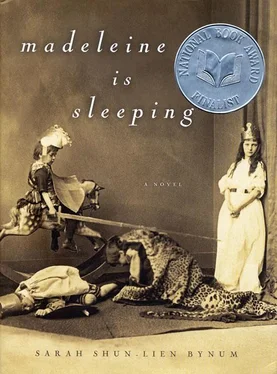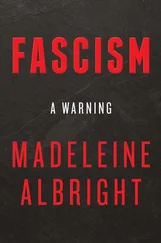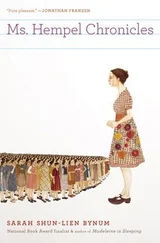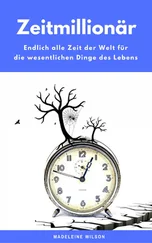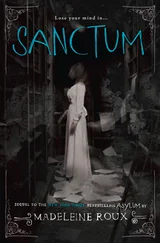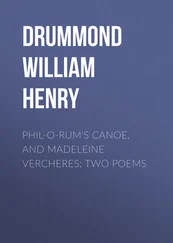what A brave thing he is about to do! M. Pujol swells; feels briefly, blissfully, free from disgrace. But as he looks up at her, it occurs to him that the girl does not lend herself very well to being saved: she is too odd, too refractory; she looks unsettling as she stands there, paddle suspended, and even when Marguerite’s ivory fan cracks against the side of her head, the girl’s face remains furrowed in thought. Though dressed as she is, ridiculously, in a froth of petticoats and bows, there is nothing she resembles more than a fading scholar, lost within the thickets of his own peculiar field. The ivory fan makes a sharp and terrible noise, yet she looks as though she is deciphering a moldy text, or perhaps creeping her way through a mathematical proof.
when she gazes at his body, crouching on the carpet, the only words that occur to her are: Orchard. Swallow. Bell. One morning her father found in their field a ruined coin. In the very place where he stood was once a town, but then an empire collapsed and the buildings languished and the river overflowed its banks, flooding everything. This is what she imagines. How else does a town sink into the earth? It lies buried for below, where all is dark and still, but on occasion some small thing will loose itself from the town and feel its way to the surface. Her father found a coin. Another man found a bottle. If it were not for the coin, and the bottle, they would not have believed that a town existed. She hears the word bell, or orchard, or swallow, and she experiences a strange surprise, like the feel of a coin in the soil. These words make her wistful; they overwhelm her with longing. Not for her orchard, nor the bell in her church, nor the swallows that nest in the eaves of her house. For something else altogether something she would have forgotten completely. She wonders: Why should these words pierce me, if they are not the remains of a currency I once knew how to spend?
crack! is the sound of an ivory fan meeting the furred curve of a child’s ear.
bruises begin to rise upon the skin of the sleeping girl. All over her body bloom patches of lavender and gold and lichen green. Beatrice conducts a concerned examination: “What could be the cause of this? Mother hunkers over her cauldron, saying nothing She thinks, Sometimes I grow clumsy with the handle of the broom. But is it my fault, that she takes up so much space? The preserves seethe about the neck of her spoon. Drops of sweat tremble on her brow. She frowns down, protectively, at the mess she has concocted: she must devise a defense. Her business, which she has nurtured so very tenderly, now finds itself under attack. The other women of the village, who until this point have been her stalwart companions, her confederates, her sisters-in-arms, have risen up against her. The reason? Covetousness, simply, which is certainly a sin. They begrudge her the success that has struck her house, swift and unbidden as the lightning bolt that set the mayor’s roof on fire. The new fur muff in her lap, the lustrous flanks of her new horse, the rattle of the jam jars atop the postman’s cart: it all feeds their fury. Sabotage is their only recourse, and soon rumors of unwholesomeness and sorcery are set roaming about the streets. Shattered crocks appear on her doorstep; the stone wall is speckled with jam. One day, on her way to market, she sees that a shrill placard has been erected along the road: IF THE FLESH IS UNCLEAN THEN SO IS THE FOOD BEWARE THE PRODUCTS OF AN UNHOLY HOME! She turns abruptly and stomps her way home. There, she surveys the girl spread before her, dewy and white and unruffled: You are the source of all this trouble, Mother says.
M. pujol can see the girl and the photographer, quarrelling once more behind the shrubbery. A flurry of fingers rises up above the privet hedge. If he stood his travelling case on one end, and climbed on top, he could wave his arms; he could cry out, Adrien! and maybe the photographer would turn around and slowly smile. But instead he drives a bargain with himself: I will not call out his name, as long as — above him an arbiter rusdes, presents itself— that leaf does not fall from that tree. He repeats the terms. They seem fair. And trusting in the impartial justice of the universe, he sits down on his travelling case. The voices continue, passing from reproach to lament to something he cannot quite recognize. Please. His face. Cannot. I saw you. The words sift over and stain him like pollen: Your hands. I cannot. But then a wind rises and the leaves stir and the voices are carried in the opposite direction, away from him. Remembering his leaf, he is sent into a panic: so many of them! All rustling, shifting, silvering; made unrecognizable in their commotion. But eventually the wind subsides and the leaves are stilled and once more it is revealed: his leaf, the one not as green as the others; looking, in feet, somewhat sickly. It trembles on its stem. It twists fretfully against the sky. When the wind lifts again, so do the flatulent mans hopes. But the leaf is more firmly attached to the tree than, by all appearances, it should be. M. Pujol searches for other signs: If that crow takes flight, he tells himself. That thistle bursts. That handsaw, in the distance, ceases. Then I will not have to go.
THERE WAS another young man once, his father an ambassador to a country M. Pujol had never heard of. He had come backstage bearing an armful of orchids, of cattleyas, and M. Pujol had shrunk in embarrassment: as though I were an opera dancer! But the young man presented them with his eyes lowered, saying nothing; and M. Pujol felt that to be insulted long would be impossible. Together they spoke little, and not often of love. Which is perhaps why, when remembering that year, M. Pujol will say of it only, My happiness then cannot be described. He means it literally, but how theatrical it sounds! To hear himself say it, even silently (for no one has asked), makes him prickle with shame. He takes refuge in these facts: the carriage we rode in was green; he had a scar, from an appendix operation, of which he was proud; he attended sixteen of my performances and his enthusiasm did not wane; his name was Hugh. The year had ended suddenly, with the announcement of his engagement to a young lady with two houses in Neuilly, near the Bois de Boulogne. At the time M. Pujol had found it painful to accept the news, but looking back he sees that it was simply the portent of what was to come. So that when, many months later, he would once again lose what he loved most to an ordinary woman— La Femme-Petomane! — the shock would not be too great for him.
but the photographer is unlikely to marry a woman with houses. He seems to have few prospects at all, of any kind. He lacks coordination; he tries to but cannot grow a moustache; his pictures are of an uneven quality. “When he speaks, he has trouble looking one in the eye. But his hand had not trembled. What a surprise that had been: a most touching surprise. The whole world is bent on surprising M. Pujol. There is a conspiracy afoot, it seems, a conspiracy to gratify him. From the far field comes a cracking, a whistling, and after that, silence; the handsaw is now abandoned in the grass, the task completed, and as if startled by the cessation of that gnawing sound, the crow shakes its wings and takes to the air, and as if released, at last, by the little spring with which the crow leaves its perch, the branch shudders, the leaves quiver, and a sickly yellow specimen comes spinning down from the sky. The flatulent man looks about him in astonishment. Could the universe be capable of such kindness? Clambering atop his travelling case, he clears his throat; he prepares a greeting; he wonders if to wave his arms would throw off his balance. He will cry out, Adrien! and the young man will turn around and look at him. But oh, surprise: the stern Impossible! The photographer is no longer there. The crown of his head does not float above the privet hedge, nor do his pale frantic fingers. Nothing of him remains visible; he has sunk beneath the privet hedge like a ship, or M. Pujol, stranded on his travelling case, is left to search the ^ horizon and wonder. He was just here, he protests. How could I have lost him?
Читать дальше
